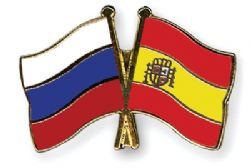- Business
- Childbirth & Education
- Legal Formalities
- Motoring
- Other
- Pensions & Benefits
- Property & Accommodation
- Taxes
- Airports and Airlines Spain
- Paramount Theme Park Murcia Spain
- Corvera International Airport Murcia Spain
- Join us for Tea on the Terrace
- When Expat Eyes Are Smiling
- Meet Wincham at The Homes, Gardens & Lifestyle Show, Calpe
- QROPS 2014
- Spain Increases IHT in Valencia & Murcia
- Removals to Spain v Exports from Spain
- The Charm of Seville
- Gibraltar Relations
- Retiro Park : Madrid
- Community Insurance in Spain
- Calendar Girls
- Considerations when Insuring your Boat in Spain
- QROPS – HMRC Introduces changes that create havoc in the market place
- QROPS – All Change From April 2012
- Liva & Laia : 15th November

Speaking after the weekly Cabinet meeting on Friday, government spokesperson Íñigo Méndez de Vigo and Defense Minister María Dolores de Cospedal confirmed that Russian and Venezuelan hackers have been interfering in the ongoing crisis in Catalonia, and announced that they would be dealing with the issue at the next EU Foreign Affairs Council meeting, which will take place this Monday.
“This is a serious issue, where democracy must confront the challenges of new technologies,” Méndez de Vigo told reporters on Friday. “It’s an issue that will be on the order of the day at the next Foreign Affairs Council meeting, where the [Spanish] foreign minister [Alfonso Dastis] will speak on the matter. […] We believe that Europe has to take this issue very seriously.
“The government has corroborated the fact that many messages and operations that were seen via social networks come from Russian territory,” Defense Minister María Dolores de Cospedal continued. “And I use the correct expression: from Russian territory. That’s not to say necessarily that we have determined that it is the Russian government. As such, we must act with extreme caution. We have to be clear on the origins. They are partly from Russian territory, partly from elsewhere, also outside the EU. We are determining this at the current time.”
Hackers from Russia and Venezuela have been publishing fake or distorted news stories related to Catalonia and to Spain. For example, one story claimed that the Balearic Islands was in favor of independence for Catalonia, while another reported that Castilian Spanish was no longer taught in the region’s schools. The multiplication of news stories about Catalonia has increased exponentially since the start of the institutional crisis.
According to Popular Party spokesperson in the European Parliament, Esteban González Pons, this meddling is designed to destabilize the European Union. “And at the moment, the focus for achieving this objective has been put want to change the constitutional order,” he added.
"This is a serious issue, where democracy must confront the challenges of new technologies on Catalonia,” he stated.
While the Spanish government and the country’s main political parties all agree that Russia has been interfering in the ongoing institutional crisis prompted by the region’s bid for unilateral independence, the executive had, until now, kept a low profile on the issue. Discretion has characterized the script that has been followed, despite González Pons already having sent his European partners a letter in which he informed them that the government of PM Mariano Rajoy had evidence about the activity of Russian hackers in Spain.>
This Friday also saw Foreign Minister Alfonso Dastis state that there are “fairly well corroborated reports” that attest to the fact that a group of Russian hackers is working to “destabilize” the European Union. Speaking to the COPE radio network, the minister said that “Russian networks or hackers are behind something that is not exclusively against Spain, but rather a way of destabilizing the EU.” The minister added that Russia has had this interest “for some time,” given that the country does not feel “comfortable” with the “unity” of the European project.
What’s more, foreign ministers on Wednesday called for the EU to increase the resources used against the Russian influence. Deputies and experts from more than 20 countries have also signed a declaration that calls on the High Representative of the European Union for Foreign Affairs and Security Policy, Federica Mogherini, to act more forcefully in cases such as that of Catalonia.
Recommended Reading :
* Putin encourages independence movement via envoy to Catalonia
* Russian hackers help keep banned Catalan referendum census site online










